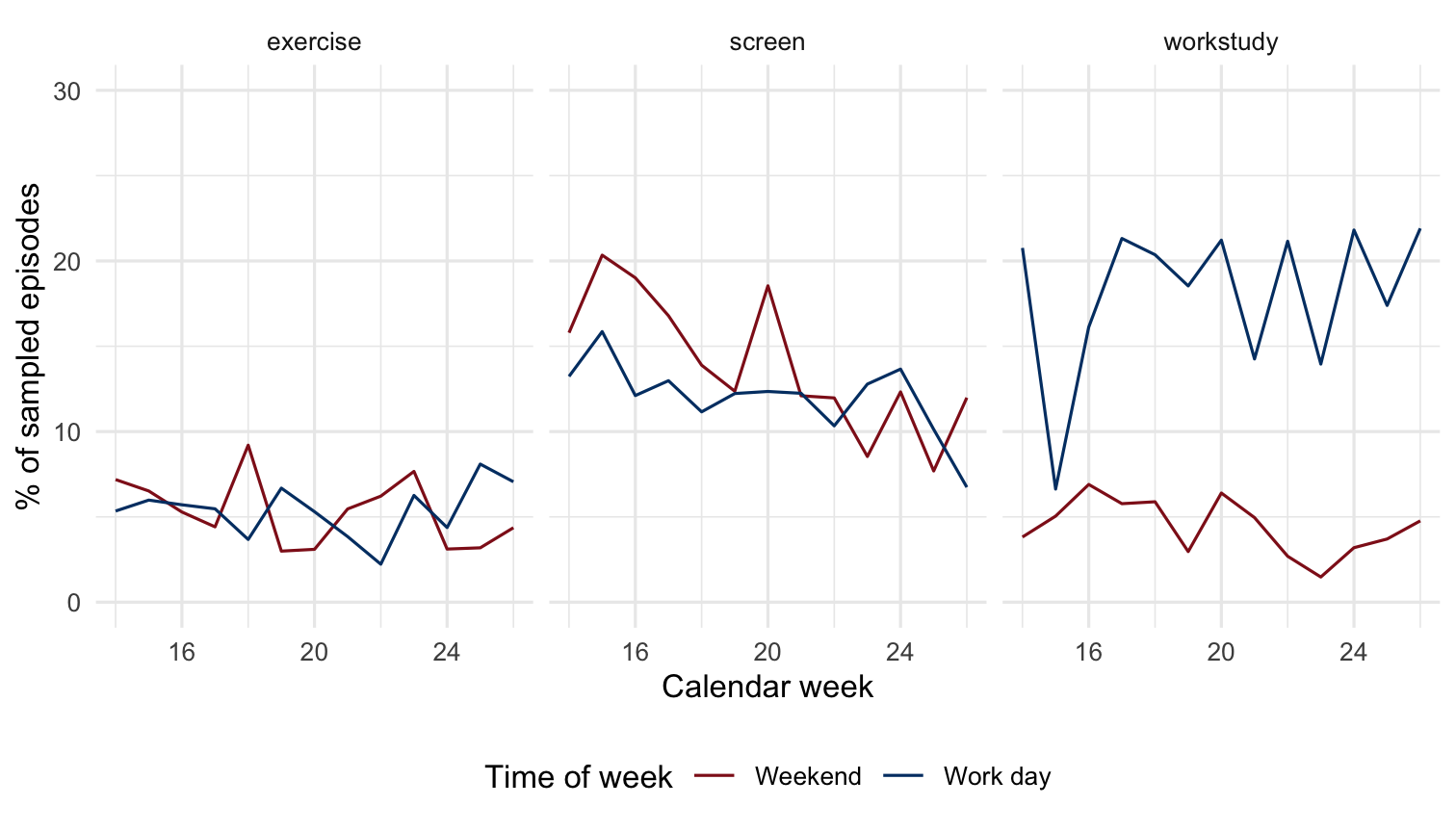Click here for: Slides.
To fight the spread of SARS-CoV-2 and COVID-19, governments around the world are implementing drastic “social distancing” policies such as school and university closures, the closing of national borders, or even placing whole cities and regions under quarantine. The epidemiological underpinning of these measures is that they “flatten the curve”, reduce peak caseload numbers in hospitals, and thereby keep health systems from breaking down. However, research has long shown that social contact is intimately tied to mental and physical health.

We have conducted a weekly online survey combining the Day Reconstruction Method (DRM; Kahneman et al. 2004) with qualitative interviews to study the impact of social distancing policies on everyday routines, mental health, family life, and interpersonal contact (including remote forms of contact using phones or digital technologies). Among the questions we seek to address are the following: Who follows recommendations (or legal requirements) to stay at home and reduce the number of social contacts? Which potentially risky routines do people have difficulties abstaining from? How do families (re-)organize their everyday routines to combine childcare and (home office) work, how do they adapt to unemployment and illness? For which types of couples and families does confinement and quarantine lead to conflict and crisis and which families are able to master these challenges or even use additional time together to improve relationship quality? What are the consequences of ongoing social distance for individual resilience and mental health? As the pandemic continues, who is able to sustain these newly-established routines, and why do others return to former habits? The answers to these and related questions will be crucial for monitoring the potential unintended consequences and risks of distancing measures and for targeting political countermeasures.